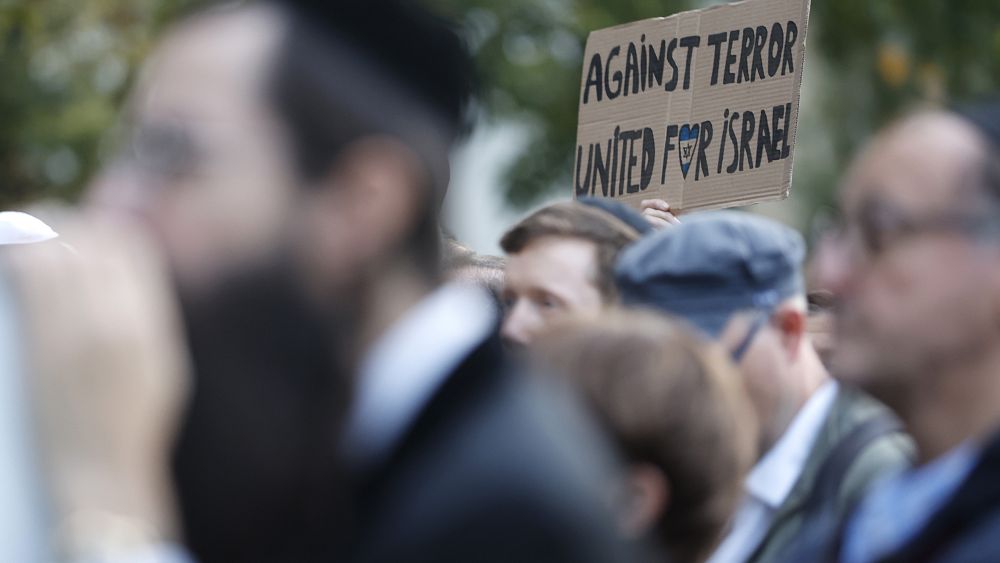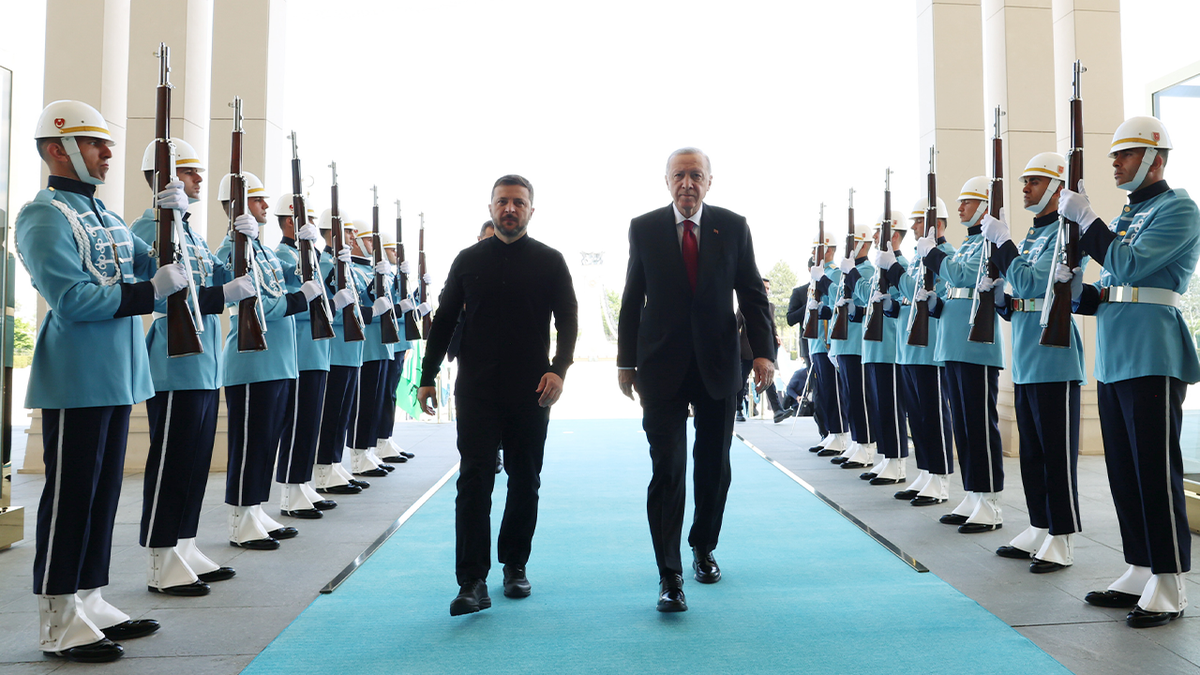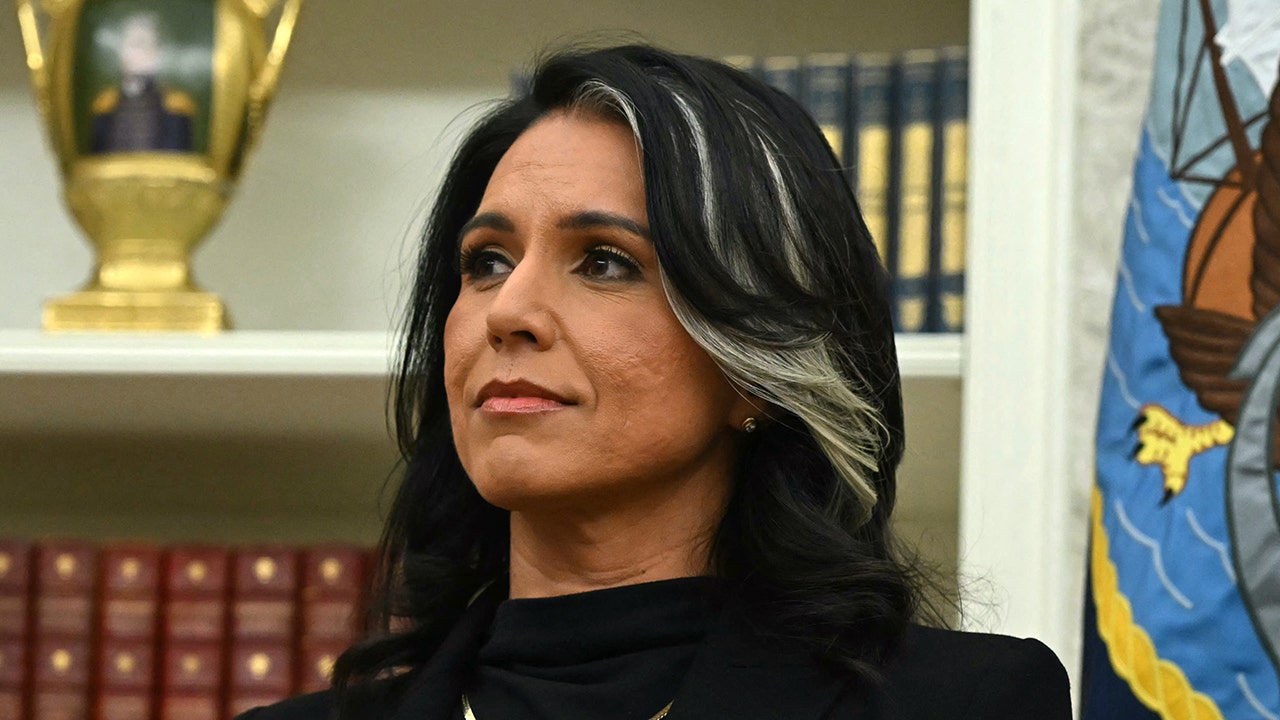World
State of the Union: Israel-Hamas conflict dominates the EU agenda

Europe spent the majority of the week dealing with the fallout from the Israel-Hamas conflict after the militant group launched an attack against its sworn enemy.
Flanked by the other leaders of the EU institutions, European Parliament President Roberta Metsola led a public ceremony to honour the Israeli victims murdered in the attacks.
Metsola offered Israel the EU’s backing, telling the country’s ambassador who was standing next to the presidents of the bloc’s institutions that Europe “stands with you”.
And she unequivocally condemned Hamas.
“There is no justification for terrorism. Hamas is a terrorist organisation. They do not represent the legitimate aspirations of the Palestinian people. They do not offer solutions. They offer bloodshed,” Metsola said.
But the EU’s reaction to the Hamas massacres in Israel was not without its difficulties.
First, Enlargement Commissioner, Olivér Várhelyi, announced that the EU would “immediately” suspend almost €700 million in aid to the Palestinian Authority.
Just hours later, Crisis Management Commissioner, Janez Lenarčič, corrected Várhelyi by affirming that humanitarian aid would still be flowing.
Then, the next day, EU foreign policy chief Josep Borrell said support should be increased, not decreased.
“The fact is that at this moment the casualties in Gaza are also increasing. 150,000 are internally displaced, and the humanitarian situation is dire, so we will have to support more. Not less. More,” Borrell said.
On top of that, Borrell announced an “urgent review” of the EU funding programmes to make sure no money ends up in the coffers of Hamas.
In any case, there were only two EU countries that cut payments to the Palestinians, at least temporarily, Austria and Germany – the others were willing to keep on with business as usual.
In an interview with Euronews, Alexander Stubb, former Prime Minister of Finland and presidential candidate, said that Israel has the right to defence.
“Israel has the right to protect itself, but at the same time, it’s very important for the European Union to work, work towards de-escalation and make sure that international humanitarian law is observed,” Stubb said.
He added that Hamas likely has the backing of other countries in the region.
“What we’re looking at is a cynical way of murdering your brothers and sisters and also from Hamas perspective, the enemy. So, I simply cannot understand why this senseless attack was made unless there are bigger players behind it,” he told Euronews.
The divisions within the 27 EU governments over the Israeli-Hamas conflict is a mirror image of feelings and opinions within our European societies.
Since the start of the war between Israel and Hamas, supporters of both sides have taken to the streets and made themselves heard.
Demonstrations, rallies and vigils were staged all over Europe, moving the long-running Middle Eastern conflict right to our doorsteps.
In France, Britain, Germany and elsewhere, authorities stepped up security measures amid fears that hateful rhetoric could soon become real violence.
And as the war between Israel and Hamas is unlikely to end tomorrow, the hope is that the situation will not get out of control on European streets.

World
Gazans Once Escaped To Rafah. Now Israel Is Razing It.

Last year, a million Palestinians fled to Rafah, the southernmost city in the Gaza Strip, to escape the brunt of Israel’s bombardment in its war against Hamas. When Israeli forces later invaded Rafah itself, they flattened areas along the border with Egypt, but many neighborhoods were largely spared the worst of the war.
That is no longer the case.
The Israeli military has destroyed extensive parts of Rafah since it ended a cease-fire in March after talks with Hamas collapsed. In early May, after much of the destruction was already complete, Israel announced it would soon launch an “intensive” escalation of its campaign in Gaza. Over the previous two nights, strikes have killed dozens of Palestinians in Gaza, Palestinian officials said. On Tuesday, the Israeli military targeted Muhammad Sinwar, a top Hamas leader in Gaza, near a hospital in Khan Younis.
Satellite images analyzed by The New York Times show that the Israeli military has flattened large areas in and around the city of Rafah and built new military infrastructure in the last two months.
Israeli leaders say capturing more territory inside Gaza will pressure Hamas to surrender and release the remaining hostages that the group has held since it led a deadly attack on Israel on Oct. 7, 2023. Israel’s defense minister vowed that Israeli forces would “clear out” the areas and “prevent any threat,” including in Rafah.
Israeli security officials have previously said that tunnels between Egypt and Gaza have allowed Hamas to stock up on weaponry and other supplies.
In response to a question from The Times about the Israeli military’s operations in Rafah, the military said that it was part of an effort to secure operational control and conduct counterterrorism operations.
“We will replicate the model implemented in Rafah in other areas of the Strip as well,” said Effie Defrin, the Israeli military spokesperson, in a press briefing last week.
Demolishing Block by Block
Here is what the operation looks like on the ground: Four excavators could be seen in a video verified by The Times tearing down a row of buildings in Rafah’s Shaboura neighborhood in April. The video, first shared on an Israeli Telegram channel, was taken from an armored vehicle.
Satellite imagery shows that hundreds of buildings were destroyed in this neighborhood during the month of April, including on the block where the video was filmed.
Earlier this month, the Israeli security cabinet approved a new plan to call up tens of thousands of additional soldiers, to seize and hold territory in the embattled enclave, and to forcibly displace Palestinians to the south. But the satellite imagery shows the areas of the south where buildings are still standing are getting smaller and smaller.
Another video shows four buildings destroyed in a controlled demolition. The video, uploaded on an Israeli soldier’s Instagram account and shared by the Palestinian journalist Younis Tirawi on his X account, was filmed in northern Rafah, where much of the destruction has taken place. Satellite image shows that the demolition took place sometime in April.
New Construction
Israeli forces are not just clearing land. They are building on it.
One new road already stretches more than three miles from the Israeli border across Rafah into agricultural areas. It is protected by berms, trenches and several military outposts.
And other construction is moving at a rapid clip, the satellite images show.
Several new military outposts, often graded, paved and surrounded by defensive walls, have been built across southern Gaza in the past month. Soldiers have also commandeered buildings to use as bases, such as an under-construction hospital.
Israel calls the road it has constructed from the Israeli border the “Morag Corridor,” which Mr. Netanyahu said last month was intended to cut Rafah off from the rest of the enclave. The name is a reference to a Jewish settlement that existed in the area until Israel withdrew its soldiers and civilians from Gaza two decades ago.
What the construction might mean for the long term is uncertain. Some Israeli officials have agitated for Israel to rebuild Jewish settlements in the enclave, but Mr. Netanyahu has rebuffed the prospect for now.
Mr. Netanyahu said last week, after much of the construction and razing in Rafah was already in progress, that Israel was “on the eve of a forceful entry to Gaza.”
World
Rubio doubts 'anything productive' will happen in Ukraine peace talks without Trump, Putin

Secretary of State Macro Rubio cast a pessimistic tone ahead of talks in Turkey now set for Friday after both Russian President Vladimir Putin and President Donald Trump said they would not be in attendance.
The peace talks, which were supposed to happen on Thursday, got thrown into disarray after both Russian and Ukrainian delegations, including Ukrainian President Volodymyr Zelenskyy, landed in various cities in Turkey as confirmation arrived that not only would Putin not be engaging in the discussions, but neither would senior members from the Kremlin.
According to reports, frustration grew as the delegations and mediators spent much of the day questioning when, and even whether, they would meet on Thursday before the meeting was ultimately pushed to Friday.
President Donald Trump speaks to reporters aboard Air Force One en route from Riyadh, Saudi Arabia, to Doha, Qatar, Wednesday, May 14, 2025. (AP Photo/Alex Brandon)
TRUMP TO SKIP RUSSIA-UKRAINE PEACE TALKS, CALLS ZELENSKYY THE ‘GREATEST SALESMAN, MAYBE IN HISTORY’
“Frankly, at this point, I think it’s abundantly clear that the only way we’re going to have a breakthrough here is between President Trump and President Putin,” Rubio told reporters. “It’s going to require that level of engagement to have a breakthrough in this matter.
“I don’t think anything productive is actually going to happen from this point forward… until they engage in a very frank and direct conversation, which I know President Trump is willing to do,” he added.
The peace talks first came about after Putin suggested last week that Ukraine and Russia should engage in direct talks. Zelenskyy agreed and said those talks should be held by the leaders of the warring nations.
Trump sparked surprise earlier this week when he suggested he might travel to Turkey from the UAE if progress was made in the talks on Thursday, but it was never previously suggested that the U.S. president, who was set to be wrapping up a Middle East tour, would be present for the negotiations.

Turkish President Recep Tayyip Erdogan welcomes Ukrainian President Volodymyr Zelenskyy at the Presidential Complex in Ankara, Turkey, on May 15, 2025. (Turkish Presidency/Murat Kula/Handout/Anadolu via Getty Images)
PUTIN PROPOSES DIRECT PEACE TALKS WITH UKRAINE TO END WAR
The Kremlin on Thursday confirmed Putin was not going to participate in the peace talks.
Aboard Air Force One on Thursday, Trump suggested Putin did not attend because of a scheduling miscommunication and told reporters that there was no hope on any real progress in negotiations until he and Putin speak.
“Look, nothing’s going to happen until Putin and I get together. OK?” Trump said. “He was going to go, but he thought I was going to go. He wasn’t going if I wasn’t there.
“I don’t believe anything’s going to happen, whether you like it or not, until he and I get together,” he added.
Any future plans for Trump and Putin to talk remain unknown.
“What I can say with certainty is that the president’s… willing to stick with [this] as long as it takes to achieve peace,” Rubio said. “What we cannot do, however, is continue to fly all over the world and engage in meetings that are not going to be productive.

Secretary of State Marco Rubio speaks to the media following a meeting of NATO foreign ministers in Antalya, on May 15, 2025, ahead of potential peace talks between Ukraine and Russia in Turkey. (Umit Bektas/Pool/AFP via Getty Images)
“The only way we’re going to have a breakthrough here is with President Trump sitting face to face with President Putin and determining once and for all whether there’s a path to peace,” he added.
Zelenskyy did not hold back in expressing his frustration over what he said is proof that Putin’s “attitude is unserious.”
“No time of the meeting, no agenda, no high-level of delegation – this is personal disrespect to Erdoğan, to Trump,” Zelenskyy reportedly said at a Thursday news conference after meeting with Turkish President Recep Tayyip Erdoğan.
World
US judge dismisses case against migrants caught in new military zone

The magistrate ruled that apprehended migrants may not have been aware they were crossing into a military zone.
A United States judge in the southwestern state of New Mexico has dismissed trespassing charges against dozens of migrants apprehended in a military zone recently created under President Donald Trump.
The military zone is one of two so far that the Trump administration has created along the US-Mexico border, in order to deter undocumented migration into the country.
Entering a military zone can result in heightened criminal penalties. As many as 400 cases have since been filed in Las Cruces, New Mexico, alleging security violations and crimes like trespassing on restricted military property.
But starting late on Wednesday and continuing into Thursday, Chief US Magistrate Judge Gregory Wormuth began issuing dismissals at the request of the federal public defender’s office in Las Cruces.
Wormuth ruled that the government had failed to demonstrate that the migrants knew they were entering a military zone.
“The criminal complaint fails to establish probable cause to believe the defendant knew he/she was entering” the military zone, Wormuth wrote in his orders dismissing charges.
The ruling is the latest legal setback for the Trump administration, as it seeks to impose stricter restrictions and penalties for undocumented immigration. But the president’s broad use of executive power has drawn the ire of civil liberties groups, who argue that Trump is trampling constitutional safeguards.
Establishing new military zones has been part of Trump’s strategy to reduce the flow of migration into the US.
Normally, the crime of “improper entry by an alien” carries fines or a prison sentence of up to six months. But trespassing on a military zone comes with steeper penalties than a typical border crossing, and Defence Secretary Pete Hegseth has warned of a possible combined sentence of up to 10 years.
“You can be detained. You will be detained,” Hegseth warned migrants. “You will be interdicted by US troops and border patrol working together.”
On April 18, the first military zone was unveiled, called the “New Mexico National Defence Area”. It covered a stretch of about 274 kilometres — or 180 miles — along the border with Mexico, extending into land formerly held by the Department of the Interior.
Hegseth has said he would like to see more military zones set up along the border, and in early May, a second one was announced near El Paso, Texas. That strip was approximately 101km or 63 miles.
“Let me be clear: if you cross into the National Defense Area, you will be charged to the FULLEST extent of the law,” Hegseth wrote in a social media post.
Hegseth has previously stated that the military will continue to expand such zones until they have achieved “100 percent operational control” of the border.
Trump and his allies have frequently compared undocumented immigration to an “invasion”, and they have used that justification to invoke wartime laws like the Alien Enemies Act of 1798.
In a court brief on behalf of the Trump administration, US Attorney Ryan Ellison argued that the new military zones were a vital bulwark for national security. He also rejected the idea that innocent people might be caught in those areas.
“The New Mexico National Defense Area is a crucial installation necessary to strengthen the authority of servicemembers to help secure our borders and safeguard the country,” Ellison said.
He noted that the government had put up “restricted area” signs along the border. But the public defender’s office in New Mexico argued that the government had not done enough to make it sufficiently clear to migrants in the area that they were entering a military zone.
In the US, the public defenders noted that trespassing requires that the migrants were aware of the restriction and acted “in defiance of that regulation for some nefarious or bad purpose”.
Despite this week’s dismissals, the migrants involved still face less severe charges of crossing the border illegally.
-

 Austin, TX5 days ago
Austin, TX5 days agoBest Austin Salads – 15 Food Places For Good Greens!
-

 Technology1 week ago
Technology1 week agoBe careful what you read about an Elden Ring movie
-

 Technology1 week ago
Technology1 week agoNetflix is removing Black Mirror: Bandersnatch
-

 World1 week ago
World1 week agoThe Take: Can India and Pakistan avoid a fourth war over Kashmir?
-

 News1 week ago
News1 week agoReincarnated by A.I., Arizona Man Forgives His Killer at Sentencing
-

 News1 week ago
News1 week agoJefferson Griffin Concedes Defeat in N.C. Supreme Court Race
-

 Health1 week ago
Health1 week agoN.I.H. Bans New Funding From U.S. Scientists to Partners Abroad
-

 News1 week ago
News1 week agoWho is the new Pope Leo XIV and what are his views?

















